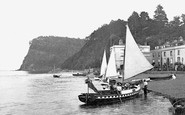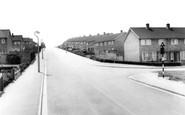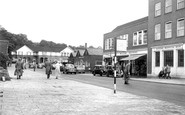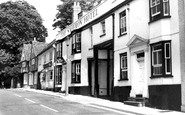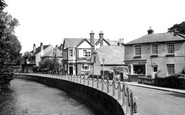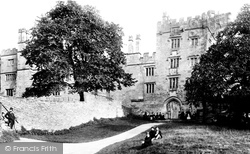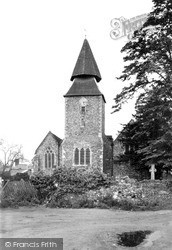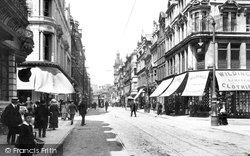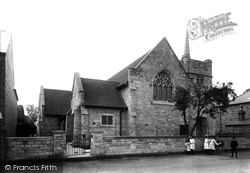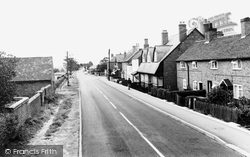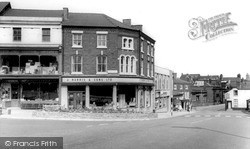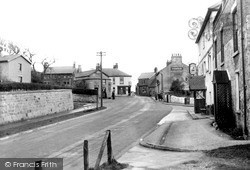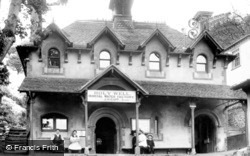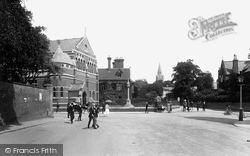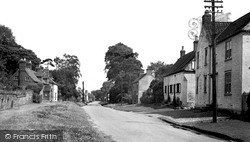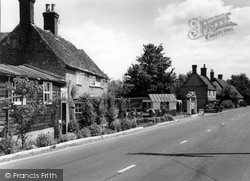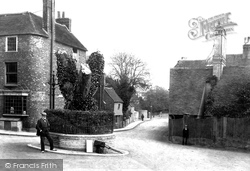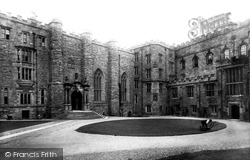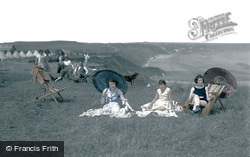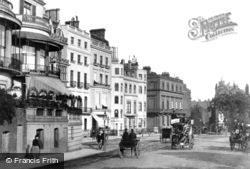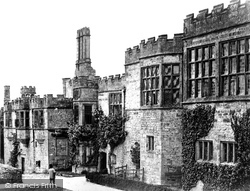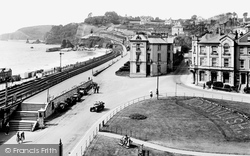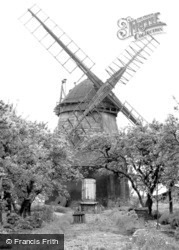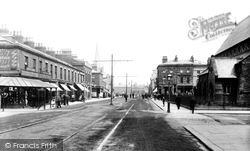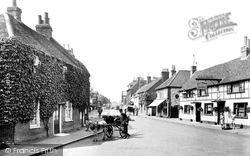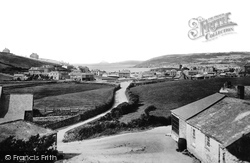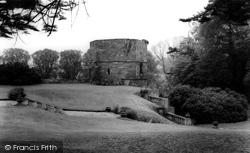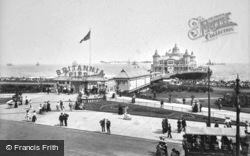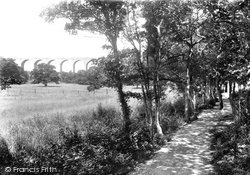Places
1 places found.
Those places high-lighted have photos. All locations may have maps, books and memories.
Photos
Sorry, no photos were found that related to your search.
Maps
22 maps found.
Books
1 books found. Showing results 121 to 1.
Memories
421 memories found. Showing results 51 to 60.
Schooldays At Arley Castle
I went to Arley Castle as a boarder in 1943/44. It made a lasting impression on me. The Arboretum was my favourite place and we had names for many of the trees which we would climb from time to time. Miss Kell and ...Read more
A memory of Upper Arley in 1943 by
Dancing In The Street By The Ferry Boat Inn
The two Shaldon ferry boats were at anchor when our Morris Dancers performed in front of the Ferry Boat Inn this week. They looked just like this photograph - although there were no sails! It was a ...Read more
A memory of Shaldon in 2009 by
My Childhood In Houghton Regis.
My name is Daniel (Danny) Cronin, the youngest of 5 and the only boy of Harry 'H' and Ann Cronin. My life began on the 27th of November 1970. My first place of residence was Recreation Road where I have ...Read more
A memory of Houghton Regis in 1970 by
Grandfathers Grave
As a child my father frequently told me that his father was buried next to John Peel in Caldbeck graveyard. I now live in Australia, but in 1997 I visited Caldbeck hoping to see my grandfather's grave. Unfortunately it was not ...Read more
A memory of Caldbeck in 1997 by
Stonehills 1958.
I lived next door to the police station which is just to the left of this photo from 1952 until 1959 when my father (the local police station sergeant) retired. This photo is very evocative of memories I had as a young ...Read more
A memory of Welwyn Garden City in 1958 by
A Wartime Tryst ?
The Saffron Hotel, quite possibly where my life began in the wartime summer of 1942.
A memory of Saffron Walden in 1942 by
Number 2 Montague Terrace
Barbara Brian. I loved reading your memories of Montague Terrace and I thank you for them. Were you the young Miss Andrews that rode that posh bicycle and lived behind the shop and did your dad at times teach tap ...Read more
A memory of Bishopstoke in 1930 by
Evacuation Ww2
I recall being evacuated to Llansaint from London as a child of 7. I lived in a small sweet shop in the the village with a family named Phillips, or Philips. I am now 74 so my memories are not too sharp with regards to names and ...Read more
A memory of Llansaint in 1941 by
A Native Of Tynemouth In Exile
I was born in Tynemouth, in Percy Park, the road leading down to the sea by the Grand Hotel. In 1956, I began at Tynemouth Prep. School, now The Kings School, in Huntington Place. I live in Hampshire now, but, I ...Read more
A memory of Tynemouth in 1955 by
June 1958 A Frightening Experience!!!!
It was my 4th birthday and we were staying in Caister at the Sycamore Camp in a caravan that my Parents had hired for a 2 week holiday. So the date 13th June 1958 and we took a trip in Dad's old car up to ...Read more
A memory of Lowestoft in 1958 by
Captions
469 captions found. Showing results 121 to 144.
It was unlived in from 1740 for nearly 200 years; then sympathatic restoration began in 1912, taking some 20 years to complete. In the last century it was used as a location by film producers.
Seventeen years later, Francis Drake began the historic round- the-world voyage that earned him his knighthood in 1581.
Newport began to grow as a town in the 13th century, and expanded as a port during the Industrial Revolution.
It was after they had founded the Holy Club at Oxford in 1729 that John and Charles Wesley began their evangelical missionary work with a trip to Georgia.
Hurley began life as a small settlement in a clearing in the Forest of Arden, and it probably did not grow substantially until Dexter Colliery opened in 1927.
The Co-Operative movement began just over the Mersey, in Lancashire, in the 1840s and rapidly spread throughout the industrial heartlands of northern England.
However, the industry declined in the 1920s, after significant subsidence began to occur.
Holy Well was renowned for its treatment of people with eye problems; bottling of the water began as early as 1622.
The school was originally located in premises opposite the parish church, but had moved to its present site to the south of the town by 1750; rebuilding began in 1809.
In the 1960s, farm land began to be sold off for development, and the village supports a post office and general store, together with two pubs - The Dog and Duck and The Ferguson Fawsitt, named after the
Corfe Mullen had a mill as long ago as the Domesday Book; it retained its independence until well into the 20th century, when its great neighbour Poole began to creep out towards it.
Bexhill's famous walnut tree began life within the manor grounds. Late in Victorian times the road was widened, and the tree became a prominent roadside landmark.
Work on the original castle began in 1072: it was the official residence of the bishops of Durham.
The building of the new town of Filey began in 1840, and by 1867 it was a bustling resort.
Widening began when the walls were removed in the 1820s, and this picture shows the road after further widening. The houses were fashionable residences, with balconies giving views over the park.
Restoration began with the 9th Duke at the beginning of the 20th century.
Dawlish began as two discrete hamlets, one inland by the parish church and another on the seashore, but quickly grew as the first visitors arrived to holiday in the late 18th century.
The photograph shows the mill when it was disused and before restoration work began.
Construction of the American-influenced Blackpool & Fleetwood Tramroad (B&FT) began in July 1897, and by September 1898 the line was fully opened.
The village main street is little changed, although Bel and the Dragon on the right is no longer also a garage.
Mining activities helped create the village, but the holiday trade really began to take off once the railway arrived in 1903. Penhale Point and Gull Rock are in the distance.
In 1695 Bishop Lloyd began rebuilding the castle, and it continued as a residence until the death of Bishop Lonsdale in 1867.
Many seaside piers began life as landing stages for pleasure steamers. Thrusting out into the sea they encapsulated the Victorian passion for exotic feats of engineering.
Work on the construction of the viaduct began in 1894 and was completed in 1897, but owing to the collapse of one of its piers it was closed straight away.
Places (1)
Photos (0)
Memories (421)
Books (1)
Maps (22)

